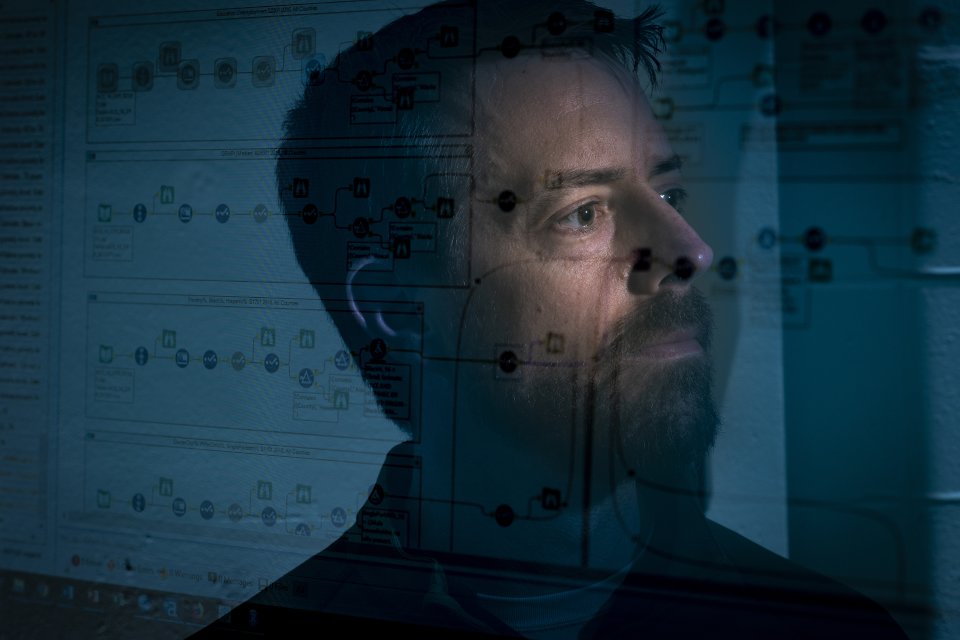
It All Starts With Data

Assistant Professor of Data Science Michael McCarthy on data scientists' crucial role in predicting — and combating — the COVID-19 pandemic.
The fight against COVID-19 goes far beyond the hospital. As healthcare workers treat and support those infected, public health professionals are working tirelessly to predict the virus's spread through society.
“The foundation for all of this analysis is data,” says Michael McCarthy, assistant professor of data science at Utica College.
From the number of positive tests for a given area to the demographics and numbers of inpatients at area hospitals, data and data scientists are key to both our understanding of the virus and the decisions government leaders are making in response.
We talked to McCarthy to learn more about data science and why data scientists are essential to combating COVID-19.
Four key takeaways:
1. Data science goes beyond the numbers.
Good data collection is but the first step in the data-science process; well-trained data scientists working with the epidemiologists transform the data into knowledge so our leaders can make decisions based on the best understanding of the data.
“Data, combined with sophisticated epidemiological forecasting tools, provides the foundation for the response decisions that our leaders are making every day,” says McCarthy.
2. Good data is clean data.
Predictive modeling, or predicting outcomes using data, is one of the key insights provided by data scientists but there are many prerequisites before predictive modeling is possible, says McCarthy. First, clean and current data is required.
“This first step can be the most difficult because organizational data is often located in multiple places; this is especially true for the COVID-19 response,” he says.
“Cleaning“ data, he says, ensures that variables' units are standardized (distances measured in kilometer or miles, for example).
“Even the best analysis techniques are worthless with unorganized and unstandardized data,” says McCarthy. “We in the data science discipline call this 'GIGO' for “garbage in – garbage out.”
3. But no data is perfect.
“The transformation of data to informed decision making is a long process that has many potential hiccups. For example, the data might be incomplete and we don't even know it. We have seen this when the lack of testing in areas led some to think the virus was not as widespread,” says McCarthy.
Additionally, he explains, some people infected with COVID-19 show few or no symptoms but can still transmit the virus. This skews the data.
4. Despite the current economy, data scientists are more in-demand than ever.
According to McCarthy, a data scientist has the knowledge and skills to provide data-driven solutions for an organization. These solutions range from simple descriptive insights to sophisticated predictive or forecasting solutions.
“In practice, a data scientist is a coder, mathematician, and problem solver who collaborates as part of a team to solve a complex problem for an organization,” he says.
Despite the economic downturn currently hitting the United States and many parts of the world, most data scientists have retained their jobs; most have very stable positions that transitioned very easily to the work-from-home situation.
“As the states begin to shift from the social distancing that required many companies to reduce operations or close, the need for data to inform decisions will only increase,” says McCarthy. “Utica College offers a master's degree in data science for those who want to jump into this exciting and growing field.”
Microbiology, Data Science, and COVID-19 from Utica College on Vimeo.
More Stories


Meet the New Provost: Dr. Ann Damiano

Keep Looking Up: Sydney Kinsella ’26
I would like to see logins and resources for:
For a general list of frequently used logins, you can also visit our logins page.
